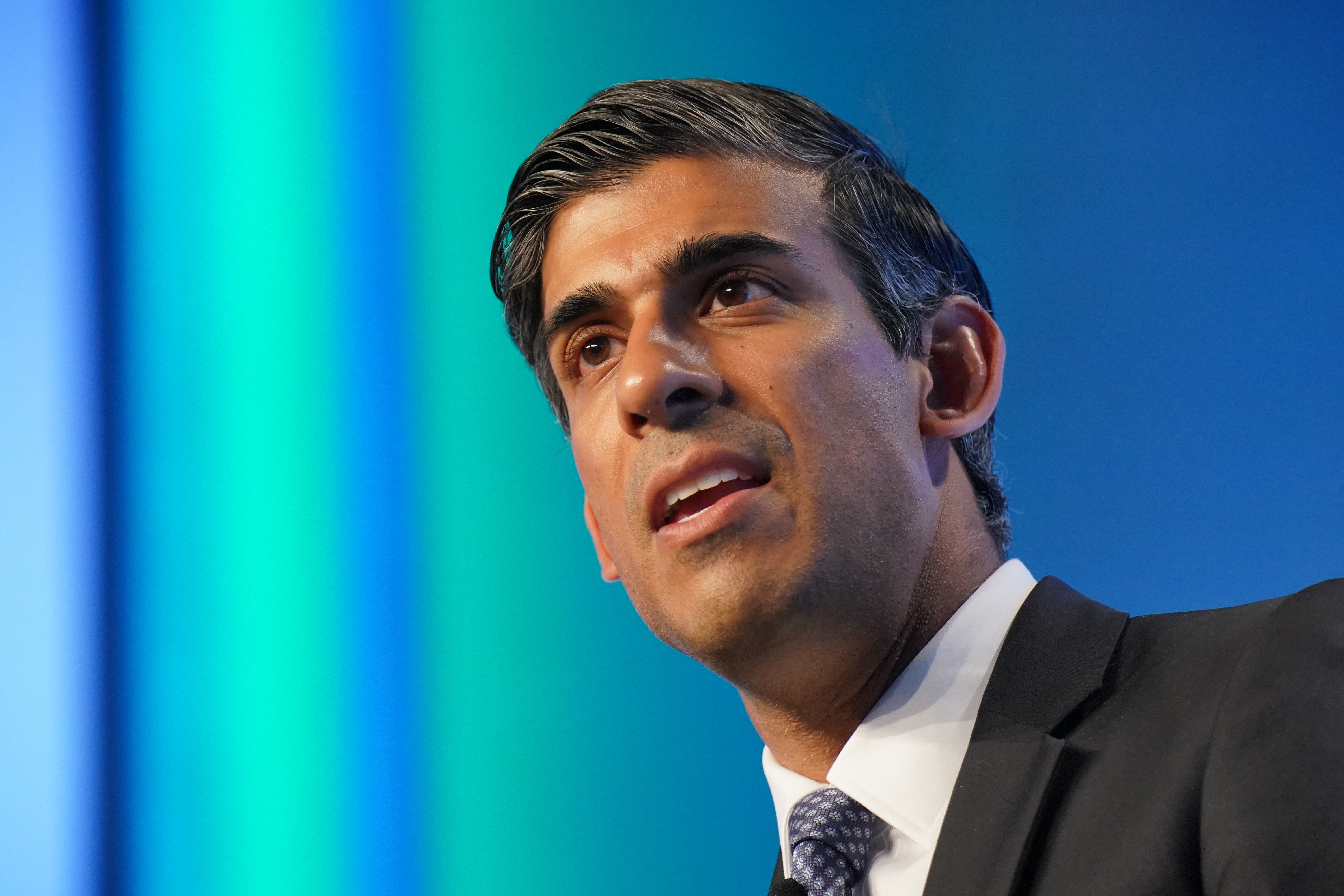Next year will see ‘enormous easing’ of cost-of-living crisis, Sunak predicts
The Chancellor said the expected rise in benefits and pensions is likely to be ‘significantly higher than inflation’ in 2023.

Your support helps us to tell the story
From reproductive rights to climate change to Big Tech, The Independent is on the ground when the story is developing. Whether it's investigating the financials of Elon Musk's pro-Trump PAC or producing our latest documentary, 'The A Word', which shines a light on the American women fighting for reproductive rights, we know how important it is to parse out the facts from the messaging.
At such a critical moment in US history, we need reporters on the ground. Your donation allows us to keep sending journalists to speak to both sides of the story.
The Independent is trusted by Americans across the entire political spectrum. And unlike many other quality news outlets, we choose not to lock Americans out of our reporting and analysis with paywalls. We believe quality journalism should be available to everyone, paid for by those who can afford it.
Your support makes all the difference.Struggling households will see an “enormous easing” in their budgetary pressures next year due to benefits and pension rises outflanking inflation, according to the Chancellor.
Rishi Sunak was forced to unveil a support package worth at least £15 billion on Thursday, handing every household £400 off their energy bills and boosting support to pensioners and those on low incomes to help the public through the cost-of-living crisis.
The Cabinet minister said he would “continue to act” if energy prices and inflation remain high next year but predicted that budgets should be under less pressure for those in receipt of state pensions and welfare benefits.
Next year there is going to be an enormous easing as all their incomes go up considerably compared to what the increase in prices is
The Chancellor made the comments after being asked by Martin Lewis, the founder of the Money Saving Expert website, whether the Treasury might have to step in again in 2023 if the crisis has not abated.
Mr Sunak responded by saying that he had “always been responsive to the situation the country is going through” during his tenure as Chancellor, having previously produced fiscal support packages such as the furlough scheme to help Britain through the coronavirus lockdowns, along with his initial cost of living package in February.
But he indicated that additional support next year was less likely to be required due to pensions and benefits going up a “significant amount” due to inflation, which has reached a 40-year high.
Mr Sunak said: “None of us know what energy prices are going to be next year.
“But what I can tell you now and what people should be reassured by is that the way our system works, benefits and pensions next year are likely – subject to a review that has to happen legally – to go up by quite a significant amount because the inflation rate that decides that is set in September.
“That is likely to be a relatively high inflation rate in September, so that is what will happen next year for everyone’s benefits and pensions, and that increase is most likely to be significantly higher than the inflation we will see next year on all the forecasts that are currently available.
“So that should give people an enormous sense of reassurance that we are providing the help today to help them get through to that point and that actually next year there is going to be an enormous easing as all their incomes go up considerably compared to what the increase in prices is.”
In the Commons, Mr Sunak said his fiscal package was worth £15 billion.
But officials later conceded that there was a hidden £6 billion cost to the announcement over the next five years because the original £200 rebate for energy bills, which was announced in February and doubled by the Chancellor on Thursday, will no longer be paid back by consumers as originally planned.
During his interview with Mr Lewis, the Chancellor denied that he had been slow to announce support for the public, arguing that Ofgem’s indication that the energy price cap could rise by a further £800 in October had set the plan into action.
“I wanted to wait for enough time so I had a sense of the scale of the problem and then we could size our support appropriately, and that’s what we’ve done,” he told the consumer campaigner.